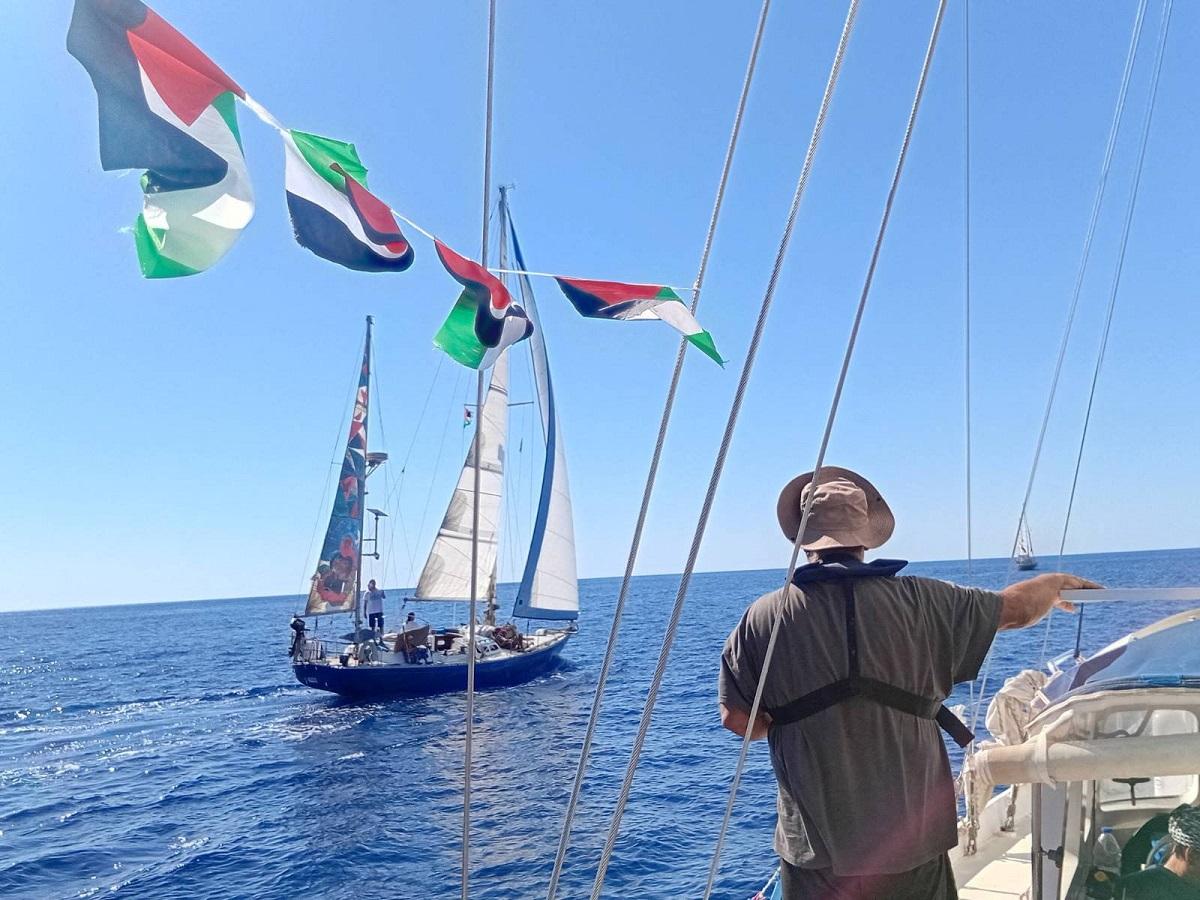ROME — Italy and Spain have deployed military ships to assist the international aid flotilla that has come under drone attack while trying to deliver aid to Gaza, potentially ratcheting up tensions with Israel, which strongly opposes the initiative.
The Global Sumud Flotilla is using about 50 civilian boats to try and break Israel’s naval blockade of Gaza. Many lawyers, parliamentarians and activists, including Swedish climate campaigner Greta Thunberg, are on board.
Italy’s Defense Minister said on Thursday his country had sent one ship and another was on its way to primarily offer assistance to Italians aboard the flotilla. He also urged activists to abandon plans to breach the blockade.
“It is not an act of war, it is not a provocation: it is an act of humanity, which is a duty of a state towards its citizens,” he told the upper house of parliament on the decision to send navy ships.
Unprecedented
Italy sent a first frigate on Wednesday, hours after the GSF said it was targeted by drones that dropped stun grenades and itching powder on the vessels as they sailed in international waters 30 nautical miles (56 km) off the Greek island of Gavdos.
No-one was hurt, but vessels suffered some damage.
Spain also sent a military warship to assist the flotilla, joining Italy in an unprecedented move by European governments. Previous activist attempts to break the naval blockade on Gaza were neutralized by force by the Israeli military.
In 2010, 10 Turkish activists were killed by Israeli commandos who raided the Mavi Marmara ship leading an aid flotilla towards Gaza.
Italian Prime Minister, a traditional ally of Israel, stressed on Wednesday that no use of military force was expected by her country’s navy, and criticized the flotilla initiative as “gratuitous, dangerous and irresponsible.”
Aid or provocation, Israel asks
The GSF has blamed Israel for the drone attack.
The Israeli foreign ministry did not respond directly to the accusation, but invited the flotilla to drop humanitarian aid at any port in a country near Israel, leaving it to Israeli authorities to take it to Gaza, or else face consequences.
“Israel will not allow vessels to enter an active combat zone and will not allow the breach of a lawful naval blockade.
Is this about aid or about provocation?,” the ministry wrote on X.
Italy has suggested that aid supplies could be dropped off in Cyprus and handed over to the Catholic Church, which would then distribute them in Gaza. The Prime Minister said Israel backs the idea.
The flotilla’s press office was not immediately available for comment on the proposal.
Activists talk to the Vatican
An Italian lawmaker for the opposition Democratic Party who is on a flotilla vessel, said mission leaders were discussing the Cyprus option “directly with the Vatican,” and not with the Italian government.
“We are in a situation today where not a single pin can get into Gaza, so all initiatives on the table are welcome,” he said about the Vatican talks. “We will assess them at the right moment.”
The GSF said early on Thursday that its vessels were sailing at slow speed in Greek territorial waters, had been subjected to “moderate drone activity” during the night, and were heading towards international waters “later today.”
Israel launched its nearly two-year-old war on Gaza in response to the October 7, 2023, attacks on the country by Hamas militants which killed some 1,200 people and saw 251 taken hostage, according to Israeli tallies.
Since then, the Israeli offensive has killed more than 65,000 Palestinians, according to Gaza health authorities, and has spread famine, destroyed most buildings, and displaced the population, in many cases multiple times.






